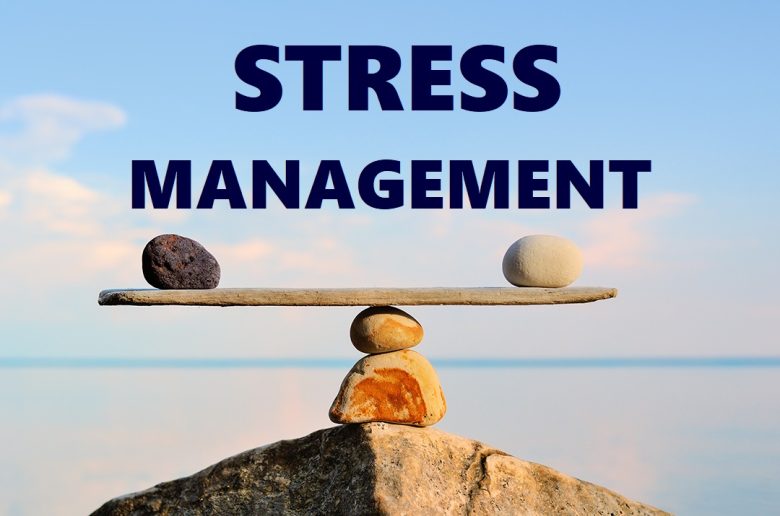Stress has become an unwelcome companion for millions of people worldwide. While a certain amount of stress can motivate us and help us perform better, chronic stress wreaks havoc on our physical health, mental well-being, and overall quality of life. The good news? Effective stress management is both achievable and scientifically proven to work.
This comprehensive guide will walk you through evidence-based strategies to identify your stress triggers, implement powerful coping techniques, and create a personalized stress management plan. By the end of this post, you’ll have a toolkit of practical methods to transform how you respond to life’s inevitable pressures.
Understanding stress and learning to manage it effectively isn’t just about feeling better—it’s about reclaiming control over your life and building resilience for whatever challenges come your way.
Understanding Stress and Its Impact on Your Life
Stress is your body’s natural response to perceived threats or challenges. When you encounter a stressful situation, your body releases hormones like cortisol and adrenaline, triggering the famous “fight-or-flight” response. This biological mechanism served our ancestors well when facing immediate physical dangers, but modern stressors rarely require such intense physiological reactions.
The problem arises when stress becomes chronic. Long-term exposure to stress hormones can lead to a cascade of health issues, including cardiovascular disease, weakened immune function, digestive problems, and mental health disorders like anxiety and depression. Research shows that chronic stress can even accelerate cellular aging and impair cognitive function.
Beyond physical health, stress affects every aspect of your daily life. It can strain relationships, reduce productivity at work, interfere with sleep quality, and diminish your ability to enjoy activities you once loved. Recognizing these impacts is the first step toward taking control of your stress levels.
The encouraging reality is that while you can’t eliminate all sources of stress from your life, you can dramatically change how you respond to them. Effective stress management isn’t about achieving a stress-free existence—it’s about developing the skills and strategies to navigate life’s challenges with greater ease and resilience.
Identifying Your Personal Stressors and Triggers
Before you can effectively manage stress, you need to understand what’s causing it. Stressors vary significantly from person to person, and what overwhelms one individual might barely register with another. Common sources of stress include work pressures, financial concerns, relationship conflicts, health issues, major life changes, and daily hassles like traffic or technology problems.
Start by keeping a stress diary for one to two weeks. Record when you feel stressed, what triggered the feeling, how intense it was on a scale of 1-10, and how you responded. This simple practice will help you identify patterns and recognize your unique stress triggers.
Pay attention to physical warning signs that indicate rising stress levels. These might include muscle tension, headaches, rapid heartbeat, shallow breathing, or digestive upset. Emotional and behavioral signals are equally important—irritability, difficulty concentrating, changes in appetite, or withdrawing from social activities can all indicate that stress is building.
Some stressors are obvious and immediate, like a looming deadline or a heated argument. Others are more subtle and cumulative, such as a noisy work environment, an uncomfortable commute, or ongoing family tensions. Both types deserve your attention because chronic low-level stress can be just as harmful as acute stress episodes.
Once you’ve identified your primary stressors, categorize them into two groups: those you can control or influence, and those you cannot. This distinction is crucial because it helps you focus your energy on areas where you can make meaningful changes while developing acceptance strategies for situations beyond your control.
Evidence-Based Stress Relief Techniques
Mindfulness and Present-Moment Awareness
Mindfulness involves paying attention to the present moment without judgment. This practice has been extensively studied and shown to reduce stress, anxiety, and depression while improving overall well-being. When you’re mindful, you observe your thoughts and feelings without getting caught up in them, creating space between you and your stressors.
Start with simple mindfulness exercises you can do anywhere. Focus on your breathing for five minutes, noticing the sensation of air entering and leaving your nostrils. When your mind wanders (and it will), gently redirect your attention back to your breath. This isn’t about stopping thoughts—it’s about changing your relationship with them.
Body scan meditation is another powerful mindfulness technique. Lie down comfortably and systematically focus attention on different parts of your body, from your toes to the top of your head. Notice any tension, warmth, or other sensations without trying to change them. This practice helps you become more aware of how stress manifests physically and promotes deep relaxation.
Meditation Practices for Stress Reduction
Regular meditation practice can literally change your brain’s structure, strengthening areas associated with attention and emotional regulation while reducing activity in regions linked to stress and anxiety. You don’t need to meditate for hours to see benefits—research shows that even 10-15 minutes daily can make a significant difference.
Loving-kindness meditation involves directing positive intentions toward yourself and others. Begin by silently repeating phrases like “May I be happy, may I be healthy, may I be at peace.” Then extend these wishes to loved ones, neutral people, difficult people, and finally all beings. This practice reduces stress while increasing compassion and connection.
Guided meditations can be especially helpful for beginners. Numerous apps and online resources offer structured sessions for stress relief, sleep improvement, and emotional balance. Find a style and voice that resonates with you, and commit to practicing regularly rather than perfectionism in any single session.
Deep Breathing and Relaxation Methods
Controlled breathing is one of the fastest ways to activate your body’s relaxation response. When you’re stressed, breathing tends to become shallow and rapid. Conscious breathing techniques counteract this pattern and signal your nervous system to calm down.
The 4-7-8 breathing technique is particularly effective for stress relief. Inhale through your nose for 4 counts, hold your breath for 7 counts, then exhale through your mouth for 8 counts. Repeat this cycle 3-4 times. This method slows your heart rate and promotes a sense of calm within minutes.
Progressive muscle relaxation involves systematically tensing and then releasing different muscle groups throughout your body. Start with your toes, clench them tightly for 5-10 seconds, then release and notice the contrast between tension and relaxation. Work your way up through your entire body. This technique helps you recognize where you hold stress physically and teaches you how to consciously release it.
Lifestyle Adjustments for Long-Term Stress Management
Exercise as a Stress-Buster
Physical activity is one of the most effective stress management tools available. Exercise reduces stress hormones like cortisol while stimulating the production of endorphins, your body’s natural mood elevators. Regular physical activity also improves sleep quality, boosts self-esteem, and provides a healthy outlet for frustration and tension.
You don’t need intense workouts to reap stress-reduction benefits. A 20-30 minute walk, especially in nature, can significantly lower stress levels. Swimming, cycling, dancing, or any activity you enjoy will be more sustainable than exercise you dread. The key is consistency rather than intensity.
Yoga combines physical movement with mindfulness and breathing techniques, making it particularly effective for stress management. Even simple poses and stretches can release physical tension while calming the mind. If you’re new to yoga, start with beginner-friendly online videos or classes.
Nutrition’s Role in Stress Management
What you eat directly affects how you feel and cope with stress. Chronic stress can disrupt normal eating patterns, leading to poor food choices that actually increase stress levels. A balanced diet supports stable blood sugar levels, optimal brain function, and better stress resilience.
Focus on whole foods including fruits, vegetables, lean proteins, and complex carbohydrates. These provide steady energy and essential nutrients for stress recovery. Omega-3 fatty acids found in fish, walnuts, and flaxseeds have anti-inflammatory properties that can help counteract stress’s physical effects.
Limit caffeine, alcohol, and processed foods, especially during high-stress periods. While these might provide temporary relief, they often worsen anxiety and disrupt sleep patterns. Stay hydrated by drinking plenty of water throughout the day, as even mild dehydration can increase stress hormones.
Sleep Hygiene for Stress Recovery
Quality sleep is essential for stress recovery and emotional regulation. Unfortunately, stress and sleep problems often create a vicious cycle—stress makes it harder to fall asleep and stay asleep, while poor sleep increases vulnerability to stress.
Establish a consistent sleep schedule by going to bed and waking up at the same time every day, even on weekends. Create a relaxing bedtime routine that signals to your body it’s time to wind down. This might include reading, gentle stretching, or practicing gratitude.
Make your bedroom a sleep sanctuary by keeping it cool, dark, and quiet. Remove electronic devices or use blue light filters in the evening, as screens can interfere with melatonin production. If racing thoughts keep you awake, try keeping a notebook by your bed to jot down worries or tomorrow’s tasks, clearing your mind for rest.
Seeking Support and Professional Help
Recognizing when you need support is a sign of strength, not weakness. If stress is significantly impacting your daily life, relationships, or physical health, professional help can provide valuable tools and perspectives you might not discover on your own.
Therapy and counseling offer structured approaches to stress management. Cognitive-behavioral therapy (CBT) helps you identify and change thought patterns that contribute to stress. Mindfulness-based stress reduction (MBSR) programs combine meditation, yoga, and body awareness techniques. Even a few sessions with a qualified therapist can provide lasting benefits.
Support groups, whether in-person or online, connect you with others facing similar challenges. Sharing experiences and coping strategies can reduce feelings of isolation while providing practical insights. Many communities offer stress management groups through hospitals, community centers, or mental health organizations.
Don’t overlook the importance of your existing social network. Trusted friends and family members can provide emotional support, practical help, or simply a listening ear when stress feels overwhelming. Be specific about what kind of support you need—sometimes you want advice, other times you just want someone to understand what you’re going through.
Creating Your Personal Stress Management Plan
Effective stress management requires a personalized approach because what works for others might not work for you. Your plan should be realistic, sustainable, and flexible enough to adapt as your life circumstances change.
Start by selecting 2-3 techniques from this guide that resonate with you. Trying to implement everything at once often leads to overwhelm and abandonment of the entire plan. Master a few strategies before adding others to your toolkit.
Schedule stress management activities just as you would any other important appointment. Whether it’s a daily 10-minute meditation, a weekly yoga class, or regular walks with a friend, consistency is more important than duration.
Create a stress emergency kit for particularly challenging days. This might include a list of breathing exercises, calming music playlist, contact information for supportive people, or favorite relaxation apps. Having predetermined strategies prevents you from making poor choices when stress peaks.
Regular evaluation and adjustment of your plan ensures it remains effective. What works during one life phase might need modification as your circumstances change. Be patient with yourself as you develop these new habits—research shows it takes an average of 66 days for a new behavior to become automatic.
Taking Control of Your Stress Response
Managing stress effectively is one of the most valuable skills you can develop for your overall health and happiness. The strategies outlined in this guide—from mindfulness and breathing techniques to lifestyle adjustments and seeking support—provide a comprehensive framework for building resilience and improving your quality of life.
Remember that stress management is an ongoing practice, not a destination. Some days will be more challenging than others, and that’s completely normal. The goal isn’t to eliminate stress entirely but to develop healthy ways of responding to life’s inevitable pressures.
Start small, be consistent, and celebrate your progress along the way. Every step you take toward better stress management is an investment in your long-term well-being. Your future self will thank you for the effort you put in today.




